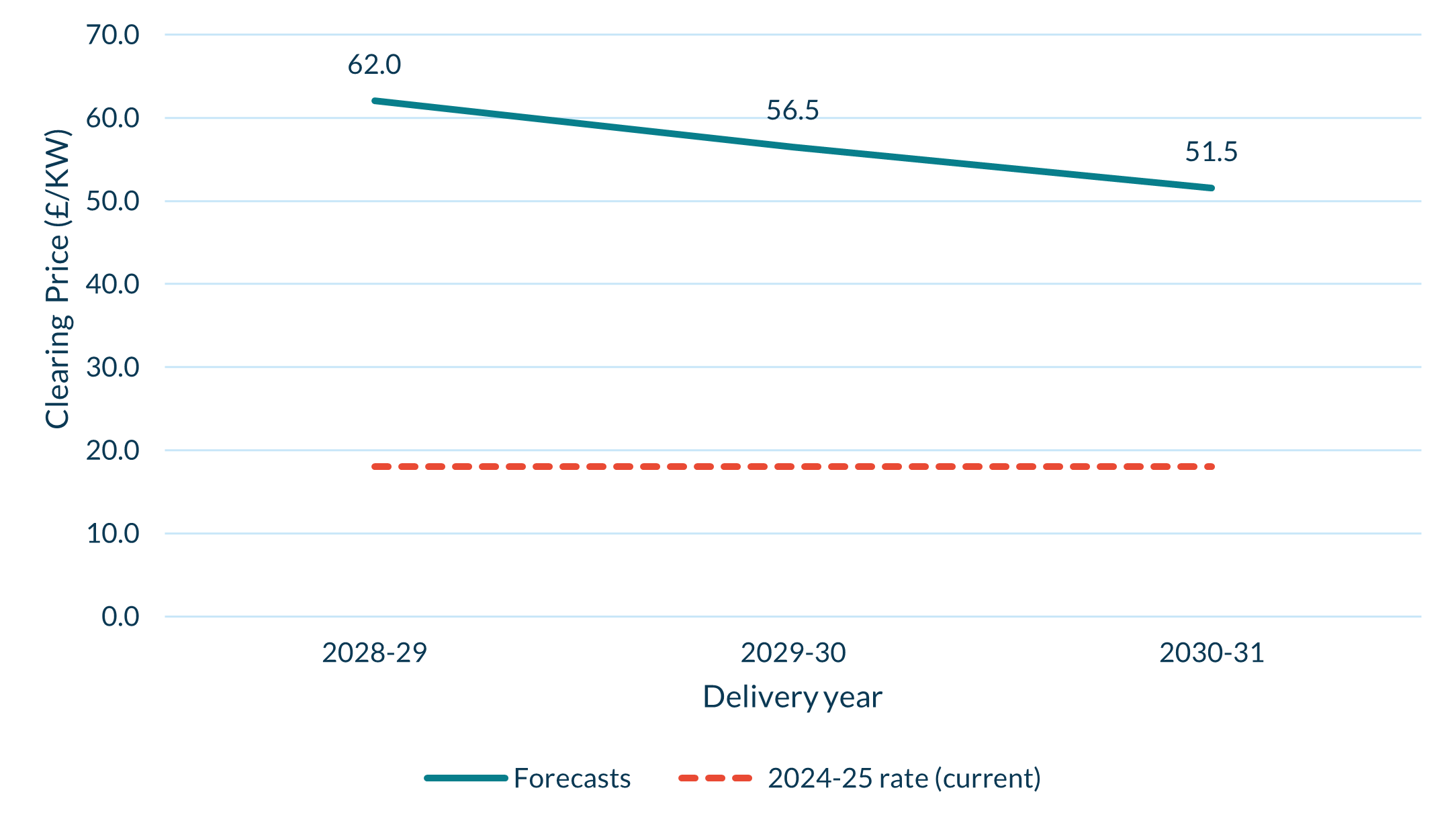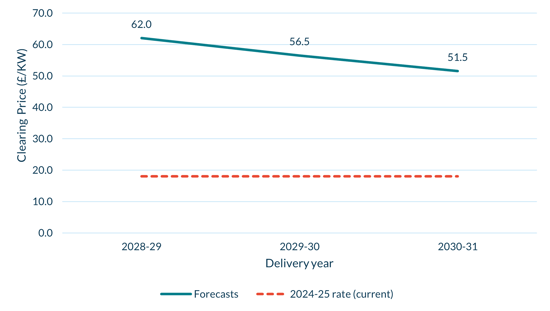News
Ageing power plants forecast to drive up grid supply costs until end of decade

New forecasts from Cornwall Insight’s Power Curve Report show that the price paid to electricity generators to maintain a stable electricity supply in the UK will remain at least £51 per kilowatt (kW) annually until the end of the decade. Substantially higher than the current £18kW rates.
Ageing power plants and the expensive construction of new electricity generation sources are cited as primary factors for the continued elevation of the prices paid to the generators who provide extra capacity to the grid when demand is high. The higher costs will be largely covered by consumers through their electricity bills.
The UK Capacity Market was implemented by the government to maintain a reliable electricity supply amidst the growth of intermittent renewable energy sources. Held twice a year, capacity auctions allow power generators to bid on providing electricity for short notice needs. Most capacity is secured four years in advance through ‘T-4’ auctions, with prices clearing at £18kW in 2020 for the 2024-25 period. However, recent auctions have shown a significant spike, with the latest auction clearing at a record £65kW for the 2027-28 period. Cornwall Insight forecasts these prices are likely to remain high until the end of the decade and likely beyond.
As existing power plants become less reliable, particularly gas and nuclear, their running hours will decrease, and they will require higher prices in the Capacity Market to cover costs. As they ultimately retire from the system, this capacity will need to be replaced and is likely to be filled by new, more expensive, generation facilities such as gas peaking plants and battery storage. While refurbishing older plants to improve efficiency would extend their lives, the costs associated with this are high and would also drive-up clearing prices.
Additionally, uncertainty over the lifespan extension of certain nuclear plants and the operational start date of Hinkley Point C will contribute to keeping prices elevated.
While the government signalled support for building new gas-fired power stations to replace aging plants in its Review of Electricity Market Arrangements, specific details remain undisclosed and no plans for the establishment of these new power stations were included with the announcement. The announcement of the election makes tangible action on these power stations unlikely any time soon.
Figure 1: Capacity Market Clearing Price Predictions 2028 – 2031

Tom Faulkner, Head of Product Development at Cornwall Insight:
“Embracing sustainable power sources for a greener future is essential, but their inconsistency means backup solutions are needed for when the wind doesn’t blow, and the sun doesn’t shine. This becomes all the more difficult when the power plants used to bridge the supply gaps are ageing and edging ever closer to retirement.
“While solutions like battery storage could meet some of the increasing power demand, they can be expensive, and generators need higher payouts to cover costs. At the same time, refurbishing the ageing plants to continue to provide the power comes with its own costs – costs which ultimately land at the feet of consumers.
“Regardless of which party wins the July election, they will face a difficult choice. While expanding renewable energy sources will increase capacity on the grid and lower Capacity Market prices in the longer-term, there are upfront costs. To encourage investment, Capacity Market prices might need to stay elevated for a while – but many will argue this is a small price to pay for a cleaner and more sustainable energy system for generations to come.”
About the Cornwall Insight Group
Cornwall Insight is the pre-eminent provider of research, analysis, consulting and training to businesses and stakeholders engaged in the Great British, Irish and Australian energy markets. To support our customers, we leverage a powerful combination of analytical capability, a detailed appreciation of regulation codes and policy frameworks, and a practical understanding of how markets function.
















